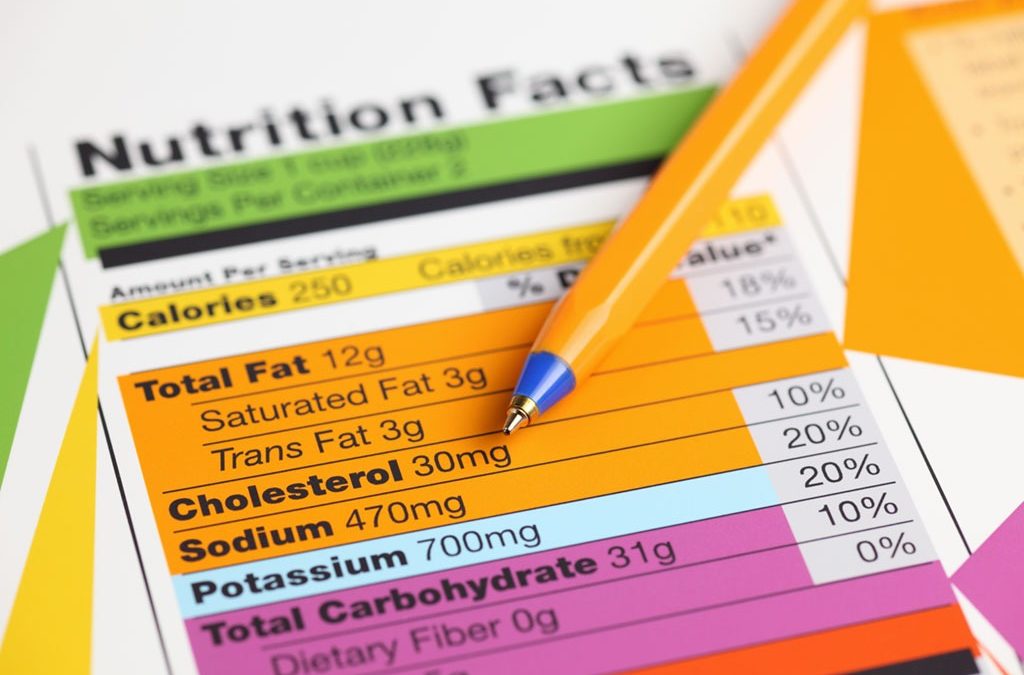Calorie counting. I am sure you’ve all heard of it, and many of you have probably even tried it for some period of time. I emphasize “for some period of time” because it is very hard to do for the long term. Calorie counting is time consuming, tedious, and largely unrealistic for most people’s lifestyles. What happens when you go to a family barbeque or out for dinner? If you rely simply on counting and tracking your calories, you become unable to account for a lot of circumstances and aren’t necessarily making informed decisions on food. If you are simply looking at the caloric content, you are missing some of the most important aspects of nutrition, such as macronutrient balance (protein, carbohydrates and fats), micronutrients (vitamins and minerals) and overall quality of food (processed foods vs. whole, unprocessed foods). More on that in another blog post! However, in addition to all those inconvenient and annoying realities of calorie counting, it is actually incredibly inaccurate and here’s why:
The following is a list of different reasons that we are unable to accurately know exactly just how many calories and nutrients are in the foods we’re eating.
- Differences between scientific measurement and human bodies
- Scientists measure the energy content of food by “burning” it in a lab, using what’s called a bomb calorimeter and obtaining the energy value (caloric content). However, humans are not bomb calorimeters; our bodies are not simple machines, we are comprised of complex biological systems and therefore do not respond the same as a calculated, scientific process carried out in a lab.
- Some labels are just approximations
- Not all foods are tested in a lab, and in fact many of the food labels we read are just approximations. Not every single food item can be measured in a lab due to cost and logistics.
- Digestion and absorption
- We lose some energy through digestion, which means that even if we know how much is going in, we are not using all of it and it’s very difficult to predict to what extent. Our bacteria in our gastrointestinal (GI) tract also affect our absorption of food.
- Excretion
- We lose nutrients and energy through the excretion of wastes.
- Outdated data
- Some data is outdated and inaccurate, which can lead to inaccurate food labels and misinformation.
- Product variety
- Different batches of foods can vary in their nutritional content; one single test cannot encompass all batches and varieties of that item.
- Soil and growing conditions
- Differing soil and growing conditions like climate, time of year, and sunlight exposure affect the nutrients that foods contain.
- Ripeness
- Many foods, like fruits and vegetables, contain different amounts and varieties of nutrients based on its ripeness. Think of a banana that is still green versus an overripe banana with brown spots-big difference!
- Animals’ diets
- The diets of the foods we are consuming (ex. the diet of a cow in which we get beef from) can affect the nutrient and energy content of foods.
- Preparation and cooking methods
- Raw versus cooked alters the nutrients and energy in foods.
As you can see, the list is long, and there are even other factors not listed here that also contribute to our lack of precise nutrient and calorie information. After considering all these factors, you are probably realizing just how much variance can exist between what we think we are taking in, and what we actually are! Nutrient and calorie information we get from food labels and the internet can actually differ immensely from reality. In fact, that difference can be up to 25%!!!
To conclude:
- We do not know the exact calories and nutrients in the foods we consume.
- We do not know exactly how many calories and nutrients we absorb, digest, use and/or excrete.
- We do not know the exact number of calories and nutrients we burn through metabolism and exercise
So basically, spending all your time tracking your calorie intake is probably not the best use of your time. Now, that is not to say that calories don’t matter; they definitely do. It’s all about energy balance, the relationship between energy we take in through nutrients (food) and energy we use or excrete through metabolism and activity. When we are using more energy than we are consuming, generally that leads to weight loss. So, energy balance is important for weight loss, weight gain, and even weight maintenance. But attempting to precisely keep track of calories is not the best way to do so, because of all the factors we just discussed! Rather than focusing strictly on calories, try to make more informed decisions on the foods you are eating. Focus on the quality of them; did it grow in the ground, swim or run before it made its way to your plate? Obviously, there’s more to it than that, but as a starting place, focusing on food quality is a good start! In the weeks to come, I will be sharing more information and helpful tips on how you can improve your nutrition and become more informed…stay tuned!
Coach Ali
I am currently enrolled in the Precision Nutrition Level 1 course, and hope to have it finished by the end of the summer. As I progress through the program, I am going to be sharing some information with all of you! My hope is that it can help you gain new nutritional knowledge, provide a different perspective on nutrition related misconceptions, help you become more informed and share helpful tips that will allow you to make sustainable changes to your nutrition. Keep following along, there’s more to come! And if there are any specific topics you want to hear about, just let us know!

Recent Comments